
The Majestic Peaks of Mount Schneeberg
Mount Schneeberg is the highest mountain in Lower Austria. It is a beacon for nature lovers and adventure seekers. The mountain stands tall at 2,076 meters, offering breathtaking views and a wide range of outdoor activities. Hiking is a popular activity at Mount Schneeberg. With trails for all skill levels, everyone can enjoy the beauty of this mountain. The most famous route is the Schneeberg Railway, a scenic train ride that takes you close to the summit. From there, you can hike to the peak and enjoy panoramic views. In winter, Mount Schneeberg transforms into a snowy paradise. Skiing and snowboarding are popular, with slopes for both beginners and experts. The mountain also offers guided snowshoe hikes, giving you a chance to explore its serene, snow-covered landscapes. For those interested in history and culture, Mount Schneeberg has much to offer. The area is rich in history, with old mining sites and traditional Austrian villages nearby. You can also visit the Schneeberg Railway Museum to learn about the mountain's role in local history.
Local tips in Mount Schneeberg
- Bring layered clothing. The weather can change quickly on the mountain.
- Book tickets for the Schneeberg Railway in advance, especially during peak season.
- Try the local cuisine in the mountain huts. Traditional Austrian dishes are a must.
- Check the weather forecast before heading out, especially in winter.
- Carry cash. Some small shops and huts do not accept credit cards.
The Majestic Peaks of Mount Schneeberg
Mount Schneeberg is the highest mountain in Lower Austria. It is a beacon for nature lovers and adventure seekers. The mountain stands tall at 2,076 meters, offering breathtaking views and a wide range of outdoor activities. Hiking is a popular activity at Mount Schneeberg. With trails for all skill levels, everyone can enjoy the beauty of this mountain. The most famous route is the Schneeberg Railway, a scenic train ride that takes you close to the summit. From there, you can hike to the peak and enjoy panoramic views. In winter, Mount Schneeberg transforms into a snowy paradise. Skiing and snowboarding are popular, with slopes for both beginners and experts. The mountain also offers guided snowshoe hikes, giving you a chance to explore its serene, snow-covered landscapes. For those interested in history and culture, Mount Schneeberg has much to offer. The area is rich in history, with old mining sites and traditional Austrian villages nearby. You can also visit the Schneeberg Railway Museum to learn about the mountain's role in local history.
When is the best time to go to Mount Schneeberg?
Iconic landmarks you can’t miss
ÖTK - Fischerhütte
Experience alpine hospitality at Lower Austria's highest mountain hut, with panoramic views and traditional cuisine on the Schneeberg.
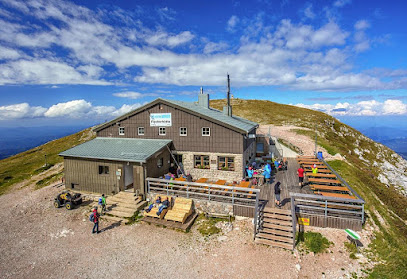
Sebastian-Wasserfall
Discover the serene beauty of Sebastian Waterfall in Puchberg am Schneeberg, a perfect escape into nature's embrace for hikers and nature lovers.
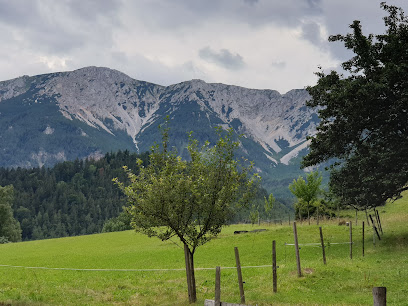
Edelweißhütte am Schneeberg
Escape to the Edelweißhütte on Schneeberg for breathtaking views, Austrian hospitality, and unforgettable alpine adventures. A perfect mountain retreat.
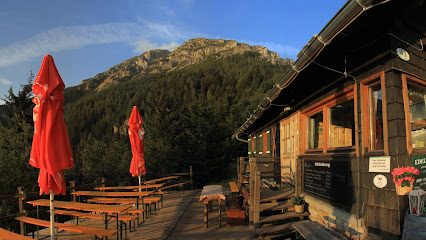
Damböckhaus
Experience Austrian hospitality at this charming mountain cabin, offering stunning views, delicious food, and a perfect hiking rest stop in the Schneeberg Alps.
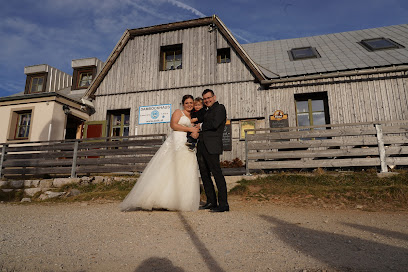
Schneeberg Sesselbahn
Ascend to the Fadensattel with Schneeberg Sesselbahn for panoramic views, hiking, and winter sports on Lower Austria's highest peak, the Schneeberg.
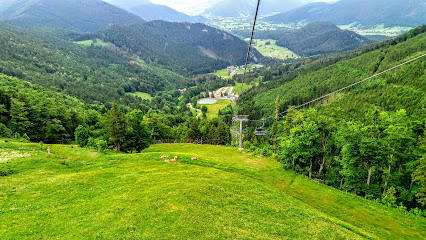
Schneeberg
Ascend Lower Austria's highest peak for panoramic views, historic railways, hiking trails, and alpine charm. A perfect day trip from Vienna!
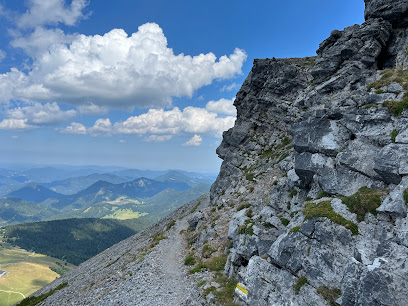
Almreserlhaus
Experience Austrian tradition with stunning mountain views at Almreserlhaus in Puchberg am Schneeberg. A culinary delight awaits!
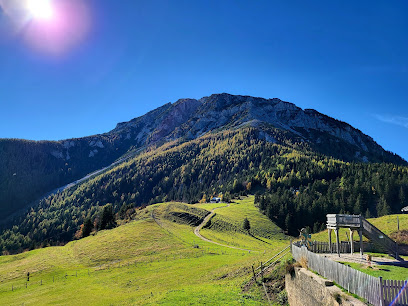
Hengsthütte
A charming mountain cabin on the slopes of Schneeberg, offering traditional Austrian cuisine and stunning alpine views.
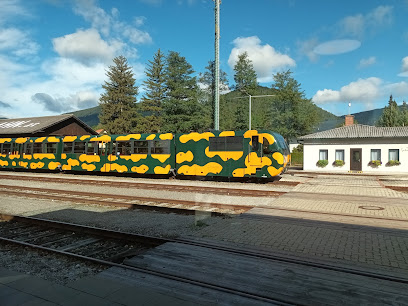
Gipfelkreuz Hochschneeberg
Experience breathtaking panoramic views and serene natural beauty at Gipfelkreuz Hochschneeberg in the Austrian Alps. A perfect destination for hikers and nature lovers.
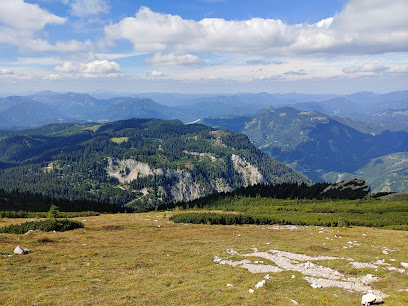
Wasserfallhütte zur Sebastianhütte
Experience Austrian hospitality amidst stunning alpine scenery at this charming inn, perfect for hikers and nature lovers seeking a tranquil escape.
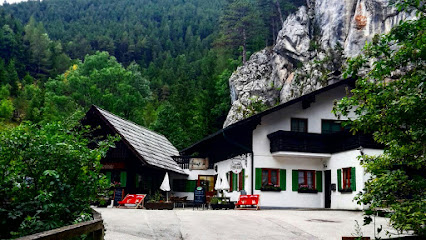
Burgruine Puchberg
Explore the enchanting Burgruine Puchberg, a historical castle ruin offering breathtaking views and a glimpse into Austria's medieval past.
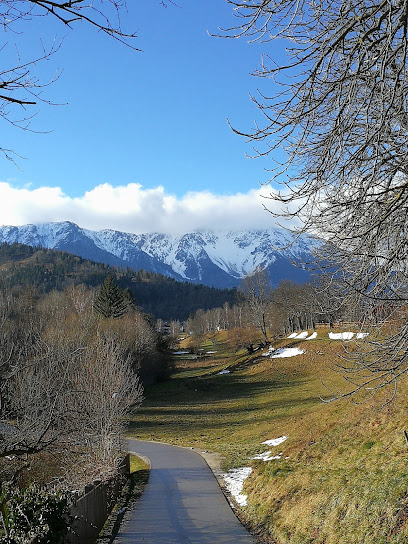
Fadensteig
Challenge yourself with a climb up the Fadensteig, a scenic and thrilling hiking route to the summit of Schneeberg in Lower Austria.
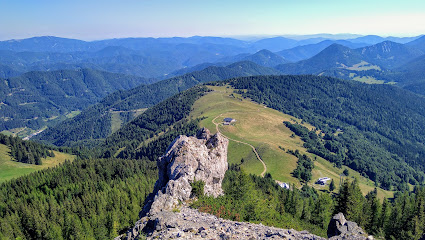
Gipfelkreuz Waxriegel
Discover breathtaking Alpine views from Gipfelkreuz Waxriegel in Hochschneeberg, Austria – a perfect destination for nature and hiking enthusiasts.
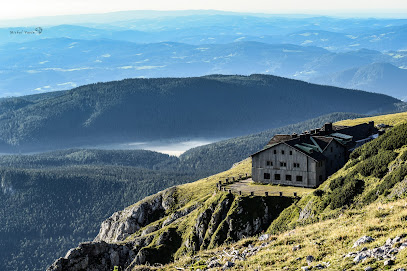
Burgruine Losenheim
Discover medieval history and panoramic views at Burgruine Losenheim, a captivating castle ruin in Lower Austria's scenic landscape.
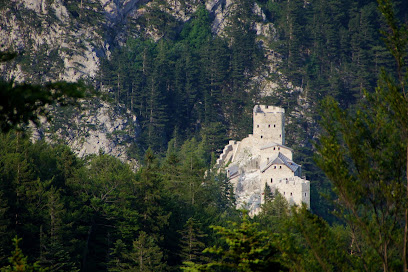
Kurpark
Discover tranquility in Kurpark Puchberg am Schneeberg, a charming park offering relaxation and natural beauty at the foot of the Schneeberg mountain.
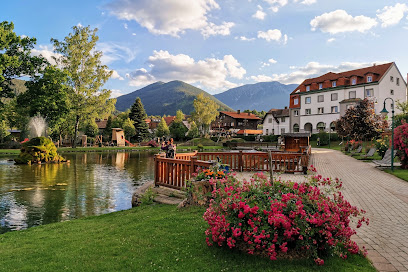
Unmissable attractions to see
Johannesbachklamm
Explore the breathtaking landscapes of Johannesbachklamm, a hiking paradise showcasing nature's beauty in Würflach, Austria.
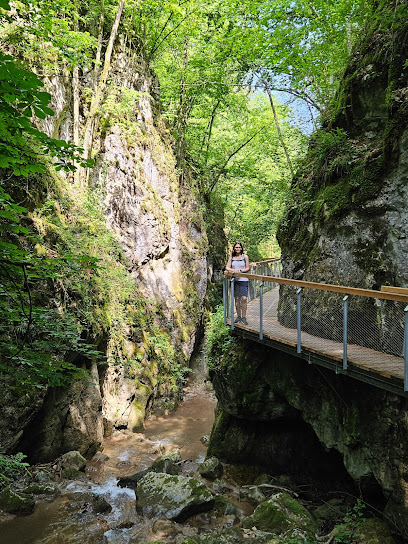
Sebastian-Wasserfall
Discover the enchanting beauty of Sebastian-Wasserfall in Puchberg am Schneeberg, a perfect blend of nature and adventure in Austria's stunning landscape.
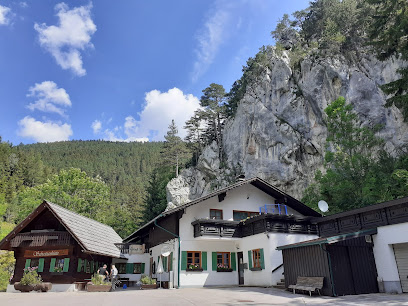
Schneeberg
Discover the breathtaking heights and rich natural beauty of Schneeberg, Austria's highest mountain peak, perfect for adventurers and nature lovers.
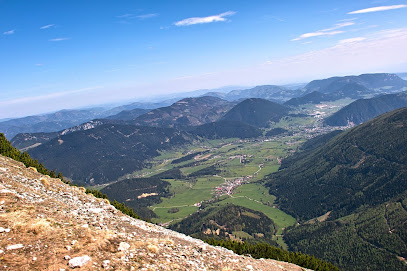
Wasserfall
Discover the breathtaking beauty of Wasserfall in Puchberg am Schneeberg, a perfect destination for hiking and exploring nature's wonders.

Gipfelkreuz Hochschneeberg
Explore Gipfelkreuz Hochschneeberg: A breathtaking tourist attraction in Austria, perfect for adventure seekers and nature lovers alike.
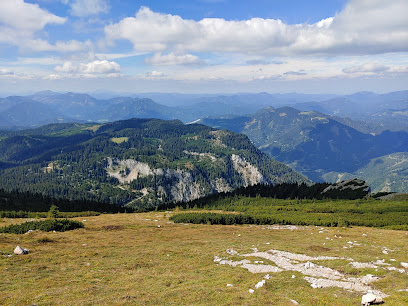
Stauweiher
Discover the serene beauty of Stauweiher, a picturesque lake in Pernitz perfect for nature lovers and outdoor enthusiasts seeking tranquility.
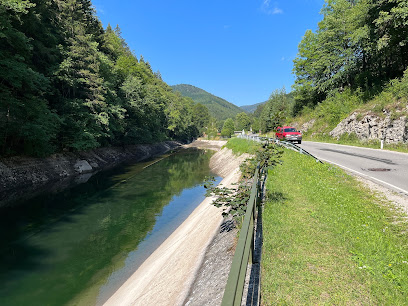
Burgruine Puchberg
Explore the majestic Burgruine Puchberg, a historical landmark nestled in the scenic mountains of Austria, rich in medieval history and stunning views.

Fadensteig
Explore the breathtaking trails of Fadensteig, a top hiking destination in Austria, where nature's beauty awaits every adventurer.
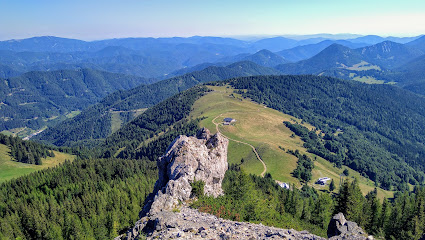
Heldendenkmal auf der Heukuppe
Explore the breathtaking Heldendenkmal auf der Heukuppe, an iconic monument surrounded by stunning landscapes and rich history.
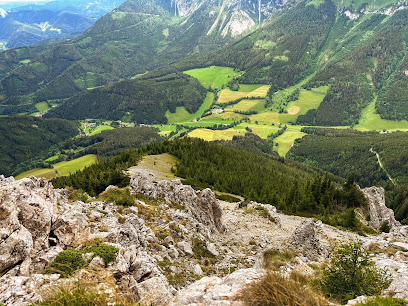
Gipfelkreuz Waxriegel
Discover the breathtaking beauty of Gipfelkreuz Waxriegel, the perfect alpine destination for hiking, photography, and nature exploration.
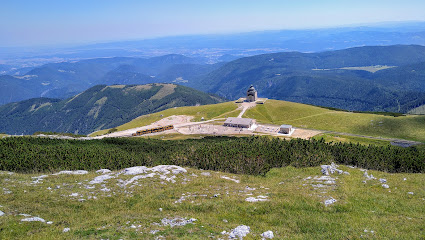
Burgruine Losenheim
Explore the enchanting Burgruine Losenheim, a medieval ruin in Austria offering rich history and stunning landscapes for every traveler.
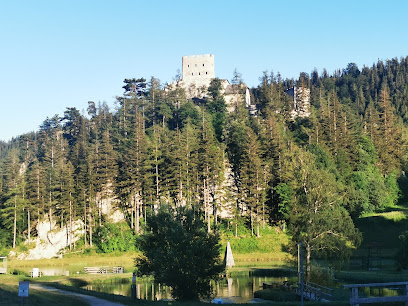
Kurpark
Discover the serene beauty of Kurpark in Puchberg am Schneeberg, a perfect escape for nature lovers and relaxation seekers.

Schneebergdörfel Anstieg zu Waxriegel
Discover the stunning hiking trails of Schneebergdörfel leading to Waxriegel, where breathtaking views and natural beauty await every adventurer.

Oldtimermuseum Hausberger
Discover the rich history of vintage automobiles at Oldtimermuseum Hausberger in Puchberg am Schneeberg, a must-visit for car lovers and history buffs.
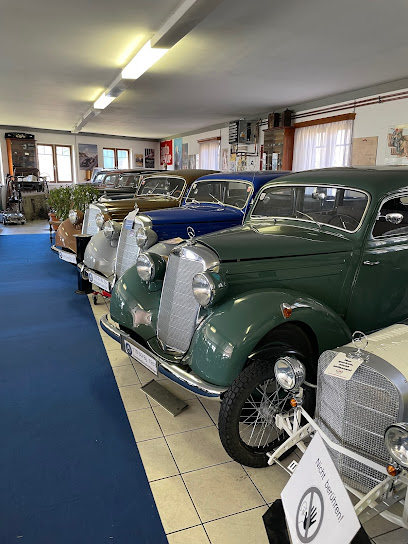
Kaiserstein
Discover breathtaking views at Kaiserstein Observation Deck, an unmissable gem in the heart of Austria's stunning landscapes.
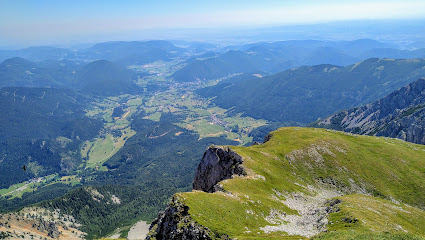
Essential places to dine
Hotel Schneeberghof
Discover unparalleled comfort and wellness at Hotel Schneeberghof in Puchberg am Schneeberg - your gateway to relaxation amidst stunning alpine landscapes.

ÖTK - Fischerhütte
Experience authentic Austrian mountain hospitality at ÖTK - Fischerhütte with delicious cuisine and breathtaking alpine views.
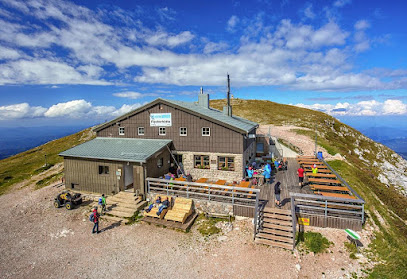
Damböckhaus
Discover Damböckhaus: A picturesque mountain cabin offering authentic Austrian dining and access to breathtaking hiking trails.
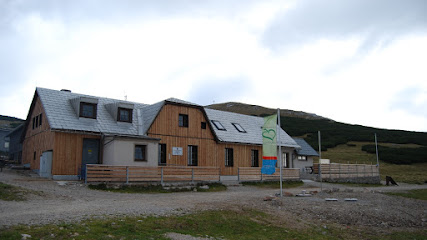
Hotel-Restaurant Forellenhof
Experience exquisite dining and cozy accommodations at Hotel-Restaurant Forellenhof amidst stunning Austrian landscapes.
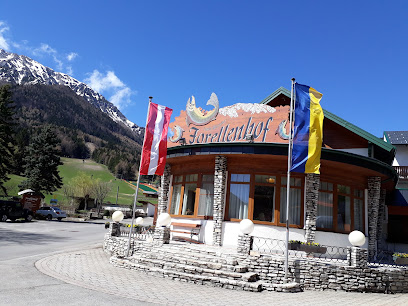
Gasthof Pension Schmirl
Discover the charm of Gasthof Pension Schmirl - where authentic Austrian cuisine meets serene alpine beauty in Puchberg am Schneeberg.
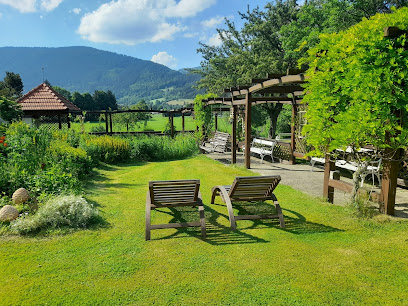
Almreserlhaus
Discover authentic Austrian cuisine at Almreserlhaus amidst stunning mountain views in Puchberg am Schneeberg.
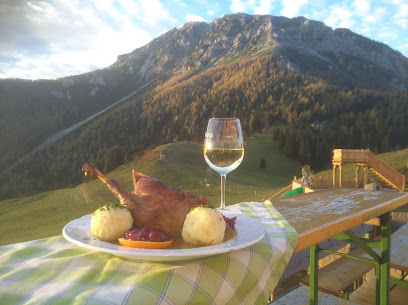
Zahnradbahnstüberl
Discover authentic Austrian cuisine at Zahnradbahnstüberl in Puchberg am Schneeberg – where every meal comes with breathtaking mountain views.

Landgasthof Hausmann
Discover traditional Austrian flavors at Landgasthof Hausmann in Puchberg am Schneeberg - where cuisine meets breathtaking mountain views.
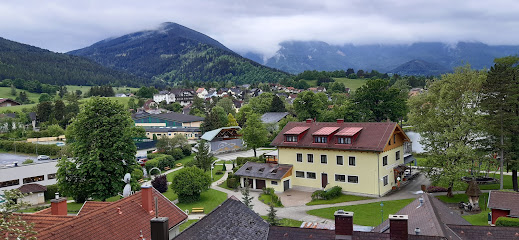
Café Orchidee
Discover Café Orchidee: A charming café in Puchberg am Schneeberg offering delicious breakfasts and inviting ambiance.

Marias Land
Discover Marias Land: A Culinary Gem Offering Authentic Austrian Cuisine and Stunning Alpine Views.
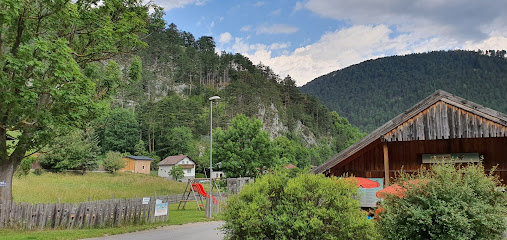
Schmankerl und Trankerl
Experience authentic Austrian cuisine at Schmankerl und Trankerl - where tradition meets innovation in Puchberg am Schneeberg.

Lahning-Inn
Experience authentic Austrian cuisine at Lahning-Inn while surrounded by stunning mountain views in Puchberg am Schneeberg.
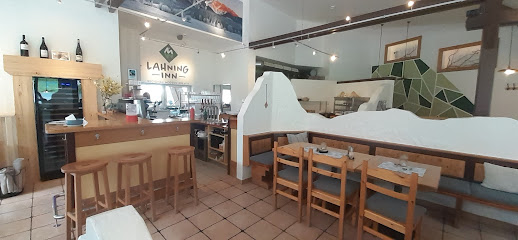
Marie am Schneeberg See
Experience family-friendly fun amidst breathtaking nature at Marie am Schneeberg See—where adventure meets relaxation in Austria.
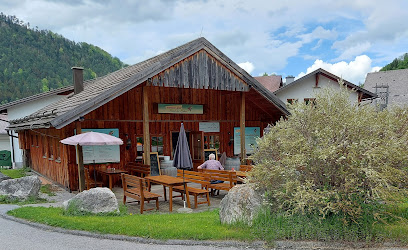
Berghaus Hochschneeberg
Experience Alpine dining at its best with stunning views and authentic Austrian cuisine at Berghaus Hochschneeberg.
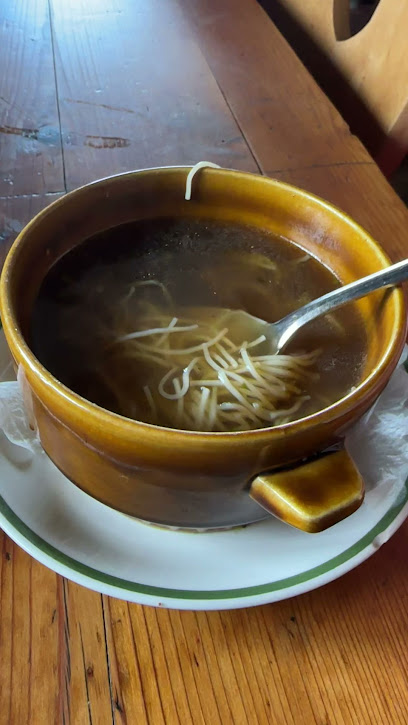
Markets, malls and hidden boutiques
ÖTK - Fischerhütte
Experience the serene beauty of ÖTK - Fischerhütte, a charming mountain cabin in the heart of the Austrian Alps, perfect for nature lovers and adventurers.
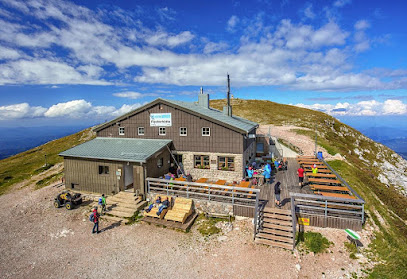
Edelweißhütte am Schneeberg
Discover the charm of Edelweißhütte am Schneeberg, a quintessential mountain cabin offering stunning views and authentic Austrian cuisine in the heart of the Alps.
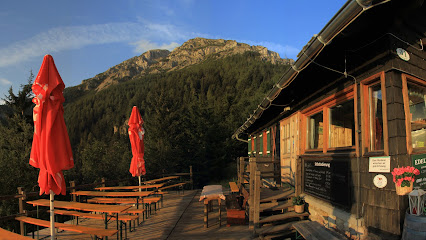
Bäckerei Cafe Konditorei Nöbauer
Experience the best of Austrian baking at Bäckerei Cafe Konditorei Nöbauer, where delectable pastries meet a charming atmosphere in Reichenau an der Rax.
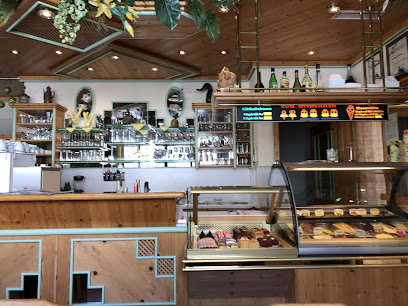
Schneeberg
Explore Schneeberg, Austria's iconic mountain peak, known for its stunning views, diverse hiking trails, and rich natural heritage. A paradise for outdoor enthusiasts.
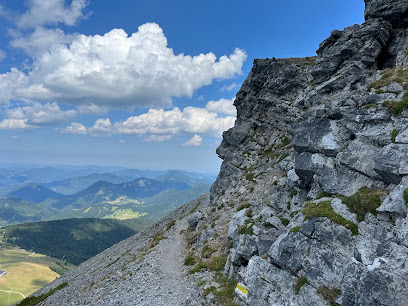
BILLA
Discover local flavors and essentials at BILLA Supermarket in Semmering, your go-to spot for fresh produce and regional specialties.
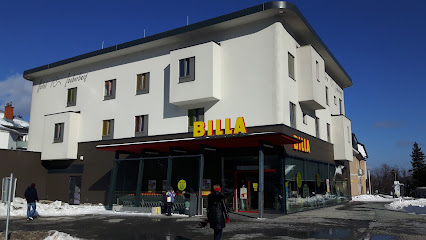
EUROSPAR Uher Reichenau/Rax
Discover fresh local produce and international delights at EUROSPAR Uher, your supermarket haven in Reichenau an der Rax.
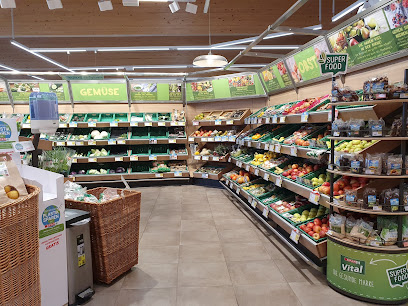
Hengsthütte
Explore the serene beauty of Hengsthütte, a charming mountain cabin offering breathtaking views and outdoor adventures in the Austrian Alps.
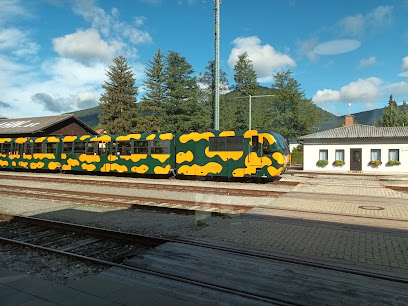
SPAR Zwinz-Scheickel Puchberg
Discover the local flavors at SPAR Zwinz-Scheickel, your go-to supermarket in Puchberg am Schneeberg for fresh produce and local delicacies.

LIBRO
Explore LIBRO in Gloggnitz for an unforgettable shopping experience filled with gifts, stationery, toys, and more, perfect for every occasion.
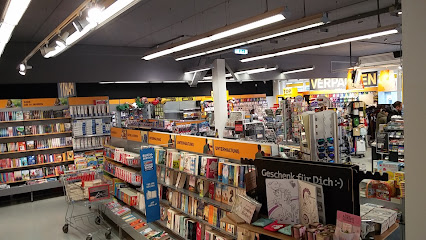
Zauder Erich GmbH
Discover quality vehicles and exceptional service at Zauder Erich GmbH in Puchberg am Schneeberg - your trusted automotive partner.

Saint-Gobain Austria GmbH - Büro Rigips
Discover high-quality building materials at Saint-Gobain Austria GmbH, your trusted source for innovation and sustainability in Puchberg am Schneeberg.

Fadensteig
Experience the breathtaking beauty of Fadensteig, a premier hiking destination in Austria, perfect for nature lovers and adventurers alike.
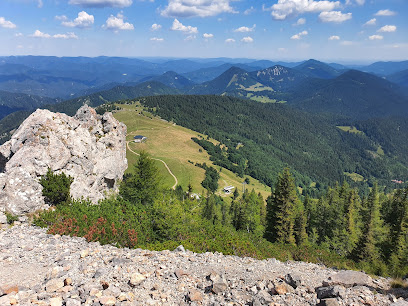
Wellnesshotel Paradiesquelle
Discover tranquility and rejuvenation at Wellnesshotel Paradiesquelle, nestled in the breathtaking landscape of Puchberg am Schneeberg, Austria.

Holzbaumeister Strebinger
Discover the art of woodworking at Holzbaumeister Strebinger in Puchberg am Schneeberg, where quality craftsmanship meets timeless design.

Kaizar Art&Tweed
Experience the artistry of handcrafted goods at Kaizar Art&Tweed in Reichenau an der Rax – where quality meets creativity.
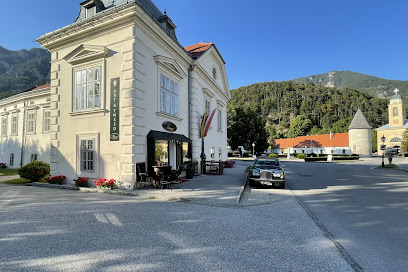
Essential bars & hidden hideouts
Hotel-Restaurant Forellenhof
Discover the charm of Hotel-Restaurant Forellenhof, where alpine beauty meets exquisite Austrian cuisine, perfect for your next getaway.
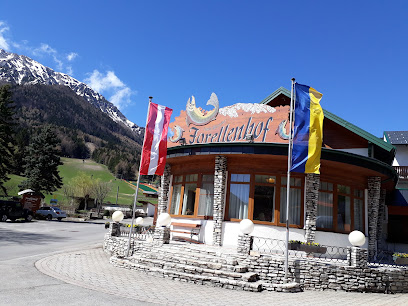
Gasthof Pension Schmirl
Experience authentic Austrian hospitality at Gasthof Pension Schmirl, where traditional cuisine meets comfortable lodging in the heart of Puchberg am Schneeberg.
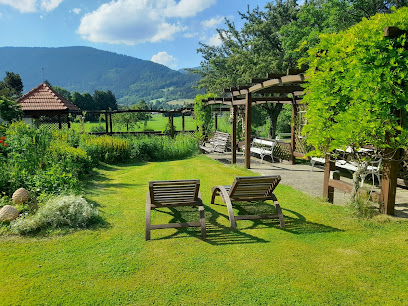
Almreserlhaus
Experience the authentic flavors of Austria at Almreserlhaus, a cozy restaurant nestled in the stunning landscape of Puchberg am Schneeberg.
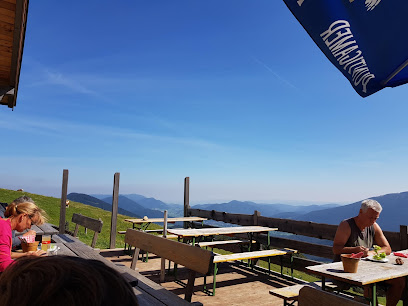
Landgasthof Hausmann
Experience authentic Austrian flavors at Landgasthof Hausmann, a charming restaurant and indoor lodging in scenic Puchberg am Schneeberg.
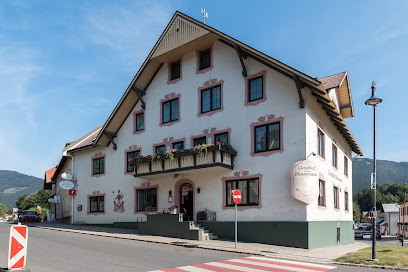
Pizzeria Alpentaverne
Experience authentic Italian flavors at Pizzeria Alpentaverne in Puchberg am Schneeberg, where every slice is a taste of Italy amidst stunning Alpine scenery.
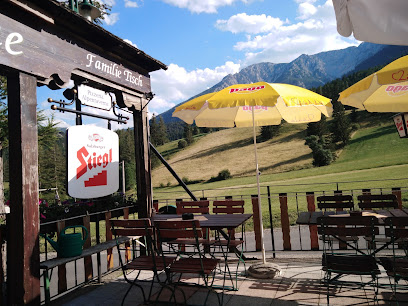
Café Orchidee
Experience the charm of Puchberg am Schneeberg at Café Orchidee, where delicious breakfasts and a cozy atmosphere await.
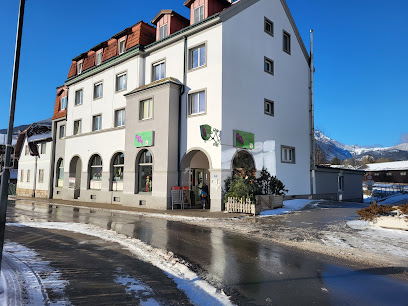
Marias Land
Experience exquisite dining and cozy accommodations at Marias Land, a hidden gem in Puchberg am Schneeberg, surrounded by breathtaking nature.
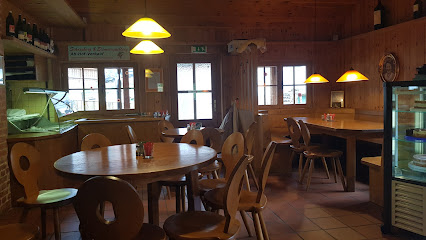
Linsberg Piano Bar
Discover the enchanting Linsberg Piano Bar, where exceptional cocktails and live music create the perfect atmosphere for relaxation and enjoyment.

Schmankerl und Trankerl
Savor the authentic flavors of Austria at Schmankerl und Trankerl, a cozy gastropub in the heart of Puchberg am Schneeberg.
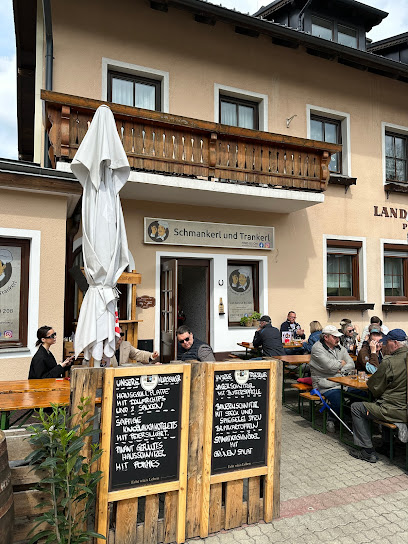
The Drunken Donkey
Discover the heart of Irish culture at The Drunken Donkey, a lively pub filled with delicious food, drinks, and unforgettable experiences.
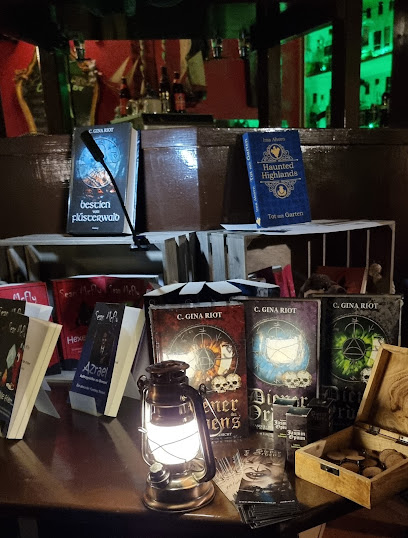
Lahning-Inn
Discover the flavors of Austria at Lahning-Inn, a cozy restaurant in Puchberg am Schneeberg with breathtaking mountain views.
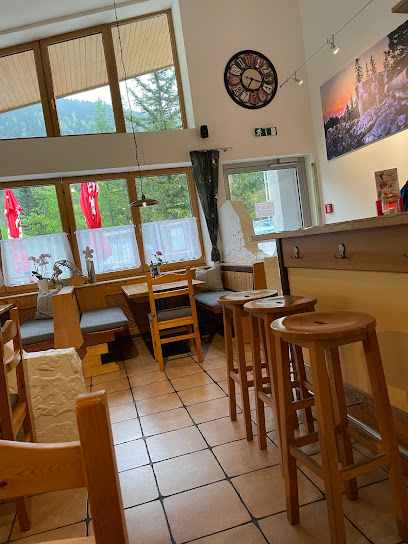
Marie am Schneeberg See
Experience the perfect blend of family fun and fine wine at Marie am Schneeberg See, a must-visit destination in Puchberg am Schneeberg.
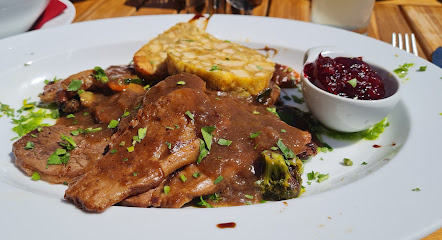
Reini's Jukebox
Experience the vibrant nightlife at Reini's Jukebox, a lively bar offering a mix of great drinks, music, and a welcoming atmosphere for all visitors.
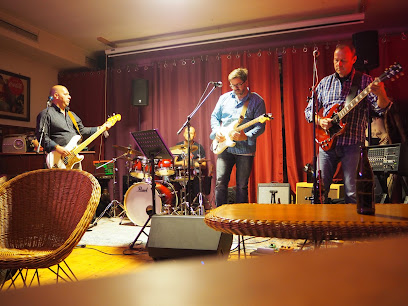
Cafe Pub Cappuccino
Discover the charm of Café Pub Cappuccino in Würflach, where great coffee meets local hospitality in a cozy atmosphere.
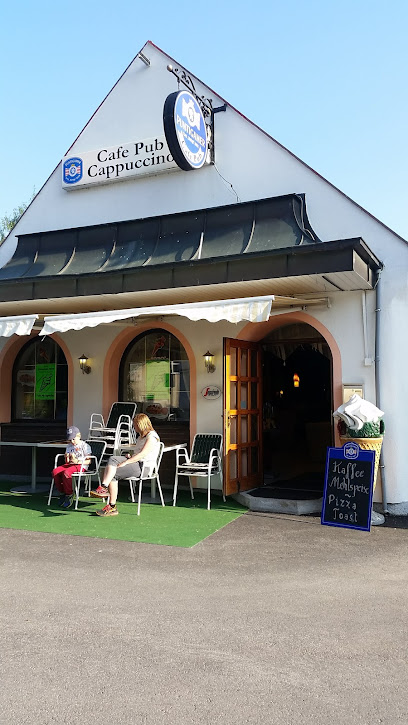
Local Phrases about Mount Schneeberg
-
- HelloGrüß Gott
[Grooss Got] - GoodbyeAuf Wiedersehen
[Owf Veed-er-zay-en] - YesJa
[Ya] - NoNein
[Nine] - Please/You're welcomeBitte
[Bit-tuh] - Thank youDanke
[Dahn-kuh] - Excuse me/SorryEntschuldigung
[Ent-shool-dee-gung] - How are you?Wie geht es Ihnen?
[Vee gayt ess Een-en] - Fine. And you?Gut. Und Ihnen?
[Goot. Oond Een-en] - Do you speak English?Sprechen Sie Englisch?
[Spreck-en Zee Eng-lish] - I don't understandIch verstehe nicht
[Eekh fair-shtayh-uh nikht]
- HelloGrüß Gott
-
- I'd like to see the menu, pleaseIch hätte gerne die Speisekarte, bitte
[Eekh hat-uh gair-nuh dee Shpy-suh-car-tuh, bit-tuh] - I don't eat meatIch esse kein Fleisch
[Eekh ess-uh kine Fly-sh] - Cheers!Prost!
[Prohst] - I would like to pay, pleaseIch möchte zahlen, bitte
[Eekh merk-tuh tsah-len, bit-tuh]
- I'd like to see the menu, pleaseIch hätte gerne die Speisekarte, bitte
-
- Help!Hilfe!
[Hil-fuh] - Go away!Gehen Sie weg!
[Gay-en Zee veg] - Call the Police!Rufen Sie die Polizei!
[Roof-en Zee dee Po-lee-tsy] - Call a doctor!Rufen Sie einen Arzt!
[Roof-en Zee I-nen Ahrtz] - I'm lostIch bin verloren
[Eekh been fair-loh-ren] - I'm illIch bin krank
[Eekh been krank]
- Help!Hilfe!
-
- I'd like to buy...Ich möchte kaufen...
[Eekh merk-tuh cow-fen] - I'm just lookingIch schaue nur
[Eekh shou-uh noor] - How much is it?Wie viel kostet es?
[Vee feel koh-stet ess] - That's too expensiveDas ist zu teuer
[Dahs ist tsoo toy-er] - Can you lower the price?Können Sie den Preis senken?
[Kern-en Zee den Price zank-en]
- I'd like to buy...Ich möchte kaufen...
-
- What time is it?Wie spät ist es?
[Vee schpate ist ess] - It's one o'clockEs ist ein Uhr
[Ess ist iyn oor] - Half past (10)Halb (zehn)
[Hahlp (tsain)] - MorningMorgen
[Mor-gen] - AfternoonNachmittag
[Nahk-mit-tahk] - EveningAbend
[Ah-bent] - YesterdayGestern
[Ges-tern] - TodayHeute
[Hoy-tuh] - TomorrowMorgen
[Mor-gen] - 1Eins
[Iyns] - 2Zwei
[Tsvey] - 3Drei
[Dry] - 4Vier
[Feer] - 5Fünf
[Fuhnf] - 6Sechs
[Zex] - 7Sieben
[Zee-ben] - 8Acht
[Ahkt] - 9Neun
[Noy-n] - 10Zehn
[Tsain]
- What time is it?Wie spät ist es?
-
- Where's a/the...?Wo ist ein/der...?
[Voh ist iyn/dayr] - What's the address?Was ist die Adresse?
[Vahs ist dee Ah-dress-uh] - Can you show me (on the map)?Können Sie mir zeigen (auf der Karte)?
[Kern-en Zee meer tsigh-en (ouf dayr Kahr-tuh)] - When's the next (bus)?Wann fährt der nächste (Bus)?
[Vahn fairt dayr nai-kstuh (Boos)] - A ticket (to ....)Eine Fahrkarte (nach ....)
[I-nuh Fair-kahr-tuh (nahkh)]
- Where's a/the...?Wo ist ein/der...?
History of Mount Schneeberg
-
The region around Mount Schneeberg has been inhabited since prehistoric times. Archaeological findings suggest that early human settlers lived in the area, utilizing its natural resources for survival. These early communities were likely drawn to the mountain for its fresh water sources and abundant game.
-
During the medieval period, Mount Schneeberg gained importance due to its strategic location. The mountain served as a natural barrier and vantage point for local rulers. It was part of the Holy Roman Empire's territory, and numerous castles and fortifications were built in its vicinity to protect the land and its people.
-
In the 17th and 18th centuries, Mount Schneeberg became a notable site for religious pilgrimages. The mountain's serene environment and majestic presence were believed to bring the faithful closer to the divine. Monasteries and chapels were constructed along the pilgrimage routes, some of which remain to this day.
-
The 19th century marked the beginning of Mount Schneeberg's popularity as a destination for explorers and tourists. The construction of the Schneeberg Railway in 1897 made the mountain more accessible. This cog railway, one of the highest in Austria, allowed visitors to ascend the mountain with relative ease, sparking an era of alpine tourism.
-
Mount Schneeberg, like many parts of Europe, was affected by the events of World War II. The mountain and its surroundings saw military activity, and its remote areas provided refuge for those fleeing the conflict. Post-war, the region witnessed a slow recovery, with renewed interest in its natural beauty and historical significance.
-
Today, Mount Schneeberg stands as a symbol of natural beauty and cultural heritage in Austria. It attracts hikers, nature enthusiasts, and history buffs alike. The mountain is also a site for various cultural events, including traditional Austrian festivals that celebrate its rich history and the natural splendor of the region.
Mount Schneeberg Essentials
-
Mount Schneeberg is located in Lower Austria, approximately 80 kilometers south of Vienna. The nearest major airport is Vienna International Airport (VIE). From Vienna, you can take a train from Vienna Central Station (Wien Hauptbahnhof) to Puchberg am Schneeberg, the town at the base of the mountain. The train journey typically takes around 1.5 to 2 hours. Alternatively, you can drive or take a bus from Vienna to Puchberg am Schneeberg, which offers scenic views of the Austrian countryside.
-
Once in Puchberg am Schneeberg, you have several options to explore the area. The Schneeberg Railway (Schneebergbahn) is a popular choice, taking you up to Hochschneeberg, the highest railway station in Austria. Local buses and taxis are available for shorter trips. For those who prefer a more active approach, hiking and cycling paths are well-marked and offer various levels of difficulty.
-
The official currency in Austria is the Euro (EUR). Credit cards are widely accepted in hotels, restaurants, and shops in Puchberg am Schneeberg. However, it is advisable to carry some cash for smaller establishments or when traveling to more remote areas. ATMs are available in the town, making it easy to withdraw cash if needed.
-
Mount Schneeberg and the surrounding areas are generally safe for tourists. Standard precautions should be taken, such as avoiding poorly lit areas at night and keeping an eye on personal belongings in crowded places. There are no specific neighborhoods with high crime rates targeting tourists, but staying vigilant is always a good idea.
-
In case of emergency, dial 112 for immediate assistance. Puchberg am Schneeberg has a local police station and medical facilities. It is recommended to have travel insurance that covers medical emergencies. For minor health issues, there are pharmacies where you can purchase over-the-counter medications. Mountain rescue services are also available in case of hiking or climbing accidents.
-
Fashion: Do wear comfortable and weather-appropriate clothing, especially when hiking. Avoid wearing overly casual attire in more formal settings. Religion: Do respect local customs and traditions when visiting religious sites. Public Transport: Do validate your ticket before boarding trains and buses. Don't eat or drink on public transport. Greetings: Do greet people with a friendly 'Grüß Gott' or 'Hallo.' A handshake is common when meeting someone for the first time. Eating & Drinking: Do try local Austrian dishes and specialties. Don't forget to say 'Prost' when clinking glasses during a toast.
-
To experience Mount Schneeberg like a local, consider visiting during the off-peak seasons to avoid crowds. Engage with the local community by attending seasonal festivals and markets. Don't miss the opportunity to hike the various trails, which offer stunning views and a chance to see local wildlife. For a unique experience, take the Salamander Train, which offers panoramic views as it ascends the mountain.
Trending Landmarks in Mount Schneeberg
Nearby Cities to Mount Schneeberg
-
Things To Do in Sopron
-
Things To Do in Vienna
-
Things To Do in Graz
-
Things To Do in Szombathely
-
Things To Do in Bratislava
-
Things To Do in Linz
-
Things To Do in Zalaegerszeg
-
Things To Do in Maribor
-
Things To Do in Gyor
-
Things To Do in Trnava
-
Things To Do in Ptuj
-
Things To Do in Keszthely
-
Things To Do in Český Krumlov
-
Things To Do in Hallstatt
-
Things To Do in Velenje










